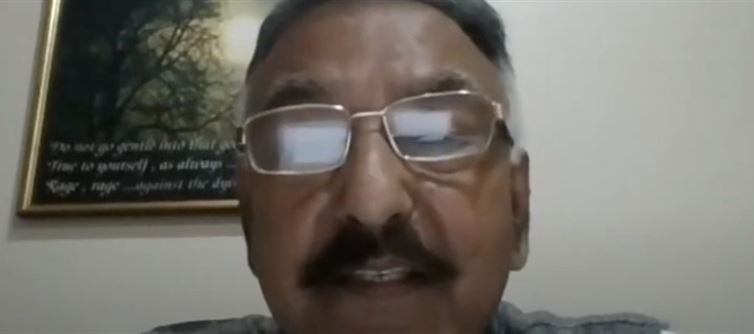
When justice takes 41 years to find its way back, it’s rarely about justice. It’s about timing.
And timing in indian politics is never random — it’s strategic.
A retired IPS officer, a 41-year-old case, a non-bailable warrant, and a trail of political revenge — the story of Kuldeep Sharma is not just about one man’s fall. It’s about how dissent is remembered long after retirement, and how files from the 80s can suddenly find new life in 2025.
💣 1. The Case That Refused to Die — Until It Was Convenient
A 1984 altercation between then-IPS officer kuldeep Sharma and a local congress leader lay buried for four decades. But suddenly, in 2025, the case is resurrected — with a non-bailable warrant.
Coincidence? Or selective memory by the state’s justice machinery?
⚖️ 2. From Investigator to Accused
kuldeep Sharma wasn’t just any officer. He was the man who once looked into allegations of a ₹2.5 crore bribe against amit shah — in the Ketan Parekh bank scam.
Soon after, he found himself transferred to a sheep and wool department. Because in Gujarat, officers who ask the wrong questions are better off tending livestock than investigating ministers.
🧨 3. The Brother Connection: A Family Too Close to Power for Comfort
Kuldeep’s brother, Pradeep Sharma, an IAS officer, also fell out of favor after he allegedly knew too much — particularly about the “snooping scandal” involving then cm Modi.
Pradeep spent six years in jail, facing multiple corruption cases, while his cbi inquiry plea against Modi went unheard.
Now, his brother faces arrest.
In Gujarat, even bloodlines can’t save you if you cross the wrong lines.
🧩 4. A Pattern or a Playbook?
Every time a bureaucrat dares to challenge the power axis — be it through allegations, inquiries, or open criticism — old ghosts return.
Files reopen.
Forgotten FIRs reappear.
court orders resurface.
This isn’t law enforcement. It’s the law as enforcement.
🧠 5. The Irony of Justice — Beaten by Time
For a case that began in 1984, the verdict came in 2024, and the arrest warrant in 2025.
The same country that can bulldoze a house overnight takes four decades to act on a minor assault case.
When the accused is a critic of the ruling regime, justice suddenly sprints.
💀 6. The Bigger Question: Why Now?
With state elections nearing and Modi’s critics becoming fewer, kuldeep Sharma’s arrest warrant feels less like closure and more like a warning shot.
It’s not about the past. It’s about the present — and the message is loud:
“You may retire from service. But you can’t retire from retribution.”
⚔️ 7. The Whistleblower’s Curse
India has a long list of officers who spoke out — and paid the price:
Sanjiv Bhatt — jailed after taking on Modi’s Gujarat.
Rajnish Rai — sidelined for exposing fake encounters.
Kuldeep Sharma — now, haunted by a 41-year-old ghost.
The pattern is clear: Speak up, and the system remembers.
🧱 8. The Final Twist: Justice as Theatre
A sessions court upholds a conviction from a local magistrate.
Fifteen days later, no stay, no relief, just a warrant.
Meanwhile, petitions, revisions, and appeals lie tangled in red tape.
When the state becomes both judge and avenger, justice isn’t blind — it’s weaponized.
🩸 9. The Verdict That Really Matters
This isn’t about kuldeep Sharma’s guilt or innocence.
It’s about what kind of nation we’ve become — one where justice has a political clock, and it ticks only when the rulers wind it.
The powerful rewrite history.
The powerless relive it.
⚠️ 10. The Endgame: Silence the Critics, Rewrite the Story
kuldeep Sharma might end up behind bars.
But the real story isn’t his arrest — it’s the systemic warning echoing through bureaucratic corridors:
“Stay loyal, or stay ready.”
And in that warning lies the truth —
The system doesn’t forgive; it waits.




 click and follow Indiaherald WhatsApp channel
click and follow Indiaherald WhatsApp channel